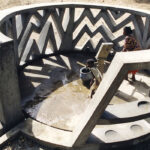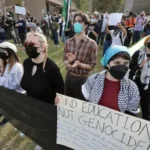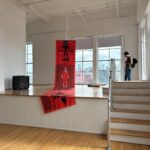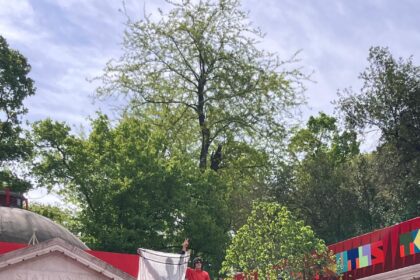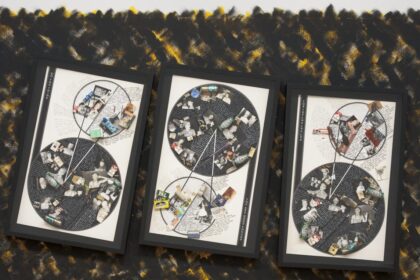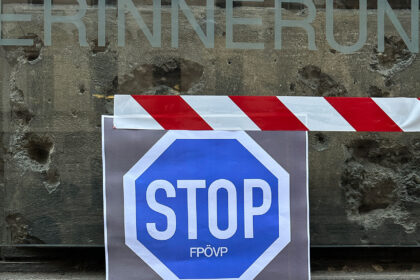2025 Global Update
Many people will remember 2016 as the year global politics got weird. The UK began a sharp turn against neoliberal globalism via Brexit, and the U.S. elected a predatory, tax-evading, real estate speculator and TV entertainer as President of the United States for the first time. And yet, these events joined with an already existing rightward change already taking shape across the globe. Later the following year, and with Grant Kester’s endorsement and encouragement, I began contacting international colleagues invested in progressive, socially engaged art and protest culture asking them for reports on local conditions. Over thirty responses came in from regions in Northern, Central, Southern and formerly Eastern Europe, the Middle East, Far East, North and South America, Australia and Africa. My proposal to Grant at the time was to consider revisiting this issue in ten years.
Now, in 2025, with the reelection of that same rogue politician and his sycophantic acolytes who collectively control $340 billion of wealth, compared with about $118 Million belonging to outgoing president Joe Biden and his cabinet. The United States is now unquestionably being governed by an elite oligarchy controlling both concentrated power and capital. But even more alarming is the anti-progressive and ultra-nationalist bent of this circle that also exhibits unmistakable authoritarian tendencies. Again with Grant’s input and support we realised that another, updated set of global reports was needed sooner than later. However, rather than publish these studies all at once as was done for FIELD issues 12/13 in 2019, we have decided to begin with a few and continue adding new entries to these accounts for the journal issues yet to come. The primary question each correspondent has been asked is,
In light of the far-right parliamentary shifts in your nation, what difficulties have arisen or do you see on the horizon to thwart progressive objectives especially as these exist within the sphere of arts and culture, and if relevant, how have these evolved over the past six to ten years?
Three contributors to these new global reports have been given a wide latitude to respond to this prompt and several other optional queries with the first set of results available in this ten-year anniversary issue of FIELD #29, (Fall 2025). These include Dr. Marco Baravalle in Venice Italy, who also contributed to the previous global reports in 2019. He provides us with a sobering glimpse into the far-right Giorgia Meloni administration who came to power in 2022. Her Brothers of Italy party has already moved to stifle dissent through a so-called “Anti-Gandhi” measure imposing prison terms for even passive forms of public protest, along with other policies against immigrants and in favor of legitimating the use of excessive force by security agents confronting opponents of the state, a proposition ripe for abuse. Baravalle’s commitment to inclusive democratic arts programming through the SaLE Docks cultural center in Venice provides him a significant degree of insight into what he calls Laboratory Italy: The Meloni Government and Postfascist Intellectuals. Within the arena of culture, Baravalle reports that, “the government has begun to “hegemonize” all available seats,” from television to “public TV, renamed “TeleMeloni”, to museums,” and theaters. This includes the renowned Venice Biennale, where Meloni’s newly appointed director, Mr. Pietrangelo Buttafuoco, once publicly asserted that “another ten years of the status quo and of the left in Italy could be lethal.”
From Lisbon Portugal we include a report provided by Dr. Cristina Pratas Cruzeiro and Raquel Ermida. Their commentary, From Marginality to Power: The Rise of Far-Right Politics in Portugal and the Potential for a Common Struggle Between Artists and Broader Society grimly informs us that the country’s far-right Chega party, which began to gain power in 2019, has now garnered a strong 18% of the vote this past year, exactly 50 years after the remarkable April 25 Revolution of 1974 that ousted Portugal’s long-lived fascist-leaning dictatorship. Already this rightward shift has emboldened long-dormant neo-Nazi groups, while infiltrating social media content that increasingly centers on “anti-immigrant sentiment, cultural nationalism, and hostility toward minority communities such as the Roma.” Significantly, Cruzeiro and Ermida first provide an overview of these political changes, but then turn to the as yet untapped potential of the cultural Left in Portugal. They observe that “collective organization has emerged as a survival strategy for artists, often relying on shared economies to sustain creative practices,” and this they contend holds out hope for organizing both the cultural and the political sector opposition to the Right. As I wrote citing Antonio Gramsci in the previous iteration of FIELD Global Reports, we must maintain an “optimism of the will” despite all else.
Finally, Vienna-based artist Oliver Ressler apprises us about the situation in his country in Austria on the Far-right Frontline. Ressler focuses on a potential, unprecedented coalition government that includes the country’s far-Right Freedom Party, or FPÖ, an organization that was founded by a former Nazi SS officer in the 1950s. Since then, it has been present only as a political faction. It now has a serious shot at leading the entire government following the elections of 2024, which is closer to leading Austria than since the end of World War II. Not surprisingly, the party’s proposed policies fit the same pattern as similar ultra-nationalist organizations in Italy and Portugal. This includes, as Ressler informs us, a definite bending away from progressive and liberal positions that is now taking place across the political spectrum. For example, one prominent politician who is not part of the FPÖ recently called for “the 40,000 refugees who have been in Austria for less than 5 years be the first to lose their asylum status.” This of course pertains to exiles from Bashar al-Assad’s brutal dictatorship in Syria, now thankfully overthrown after years of bloodshed. This demand to immediately repatriate these refugees came from the more moderate and centrist conservative party (ÖVP), which clearly demonstrates just how far Austria’s current political discourse has moved towards the extreme right.
The racially charged and inhuman nature of this Austrian politician’s proposal indicates just how conservative the atmosphere in the nation is becoming. Furthermore, Ressler sees this rise of Austria’s far-right as increasingly normalized by other nations given the current neo-authoritarian and ultra-nationalist tilt across Europe and the globe. It is a situation he tells us gravely, that will reduce the “scope for oppositional tactics and art activism.” Nonetheless, Ressler too proposes a set of propositions for renewed resistance in which “artists and art workers can contribute meaningfully” to the coming political struggle against these reactionary forces.
Writing this introduction, however, just ten days after the re-election of our own far-right, ultra- nationalist leader, it is impossible not to feel a chill already in the air. Unlike in 2016, the streets of the United States are largely quiet thus far, quite the opposite of the weeks leading up to and immediately following Trump’s first election. Demonstrations are markedly smaller, and receive less media attention than before. How much of this can be attributed to existential shock, protest exhaustion, or actual measures being proposed to quash dissent, or in many instances already implemented by police, local governments, and even universities in the wake of pro-Palestinain demonstrations, is unclear. What is abundantly evident, however, is that whatever else we must do to get through the next few years, survival by itself is not going to be enough.
January 30 2025
New York City
Dr. Gregory Sholette is a New York-based artist, writer, activist, and scholar of social art theory and history, as well as a co-founder of the art collectives Political Art Documentation/Distribution (PAD/D: 1980-1988), REPOhistory (1989-2000), and Gulf Labor Coalition (2010-). Sholette’s books include The Art of Activism and the Activism of Art, Dark Matter: Art and Politics in the Age of Enterprise Culture, and Delirium and Resistance: Art Activism and the Crisis of Capitalism. He is a co-director with Chloë Bass of Social Practice City University of New York (SPCUNY) and Affiliated Doctoral Faculty Professor with the Earth and Environmental Sciences Geography Program at the CUNY Graduate Center.


